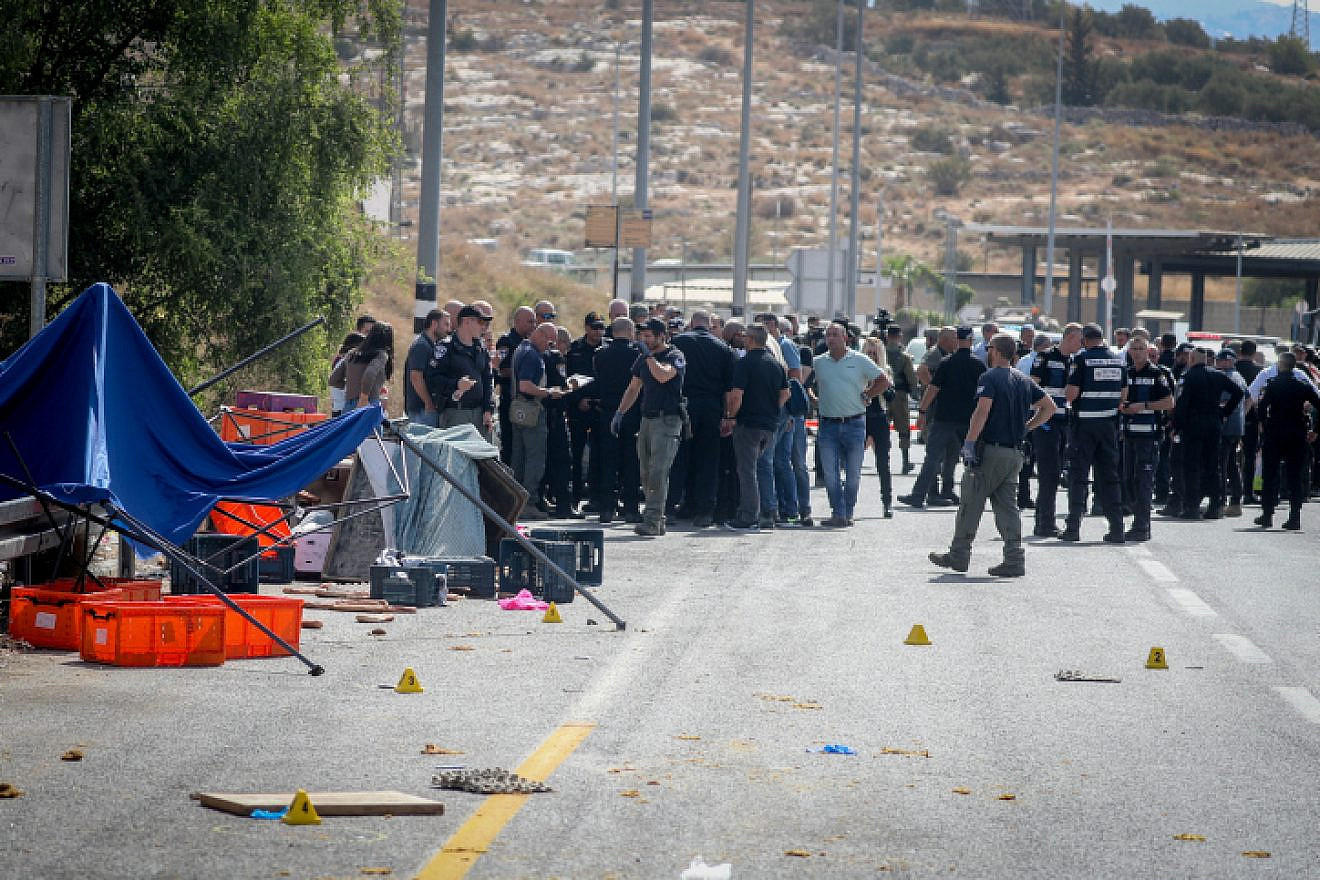Palestinian terrorism in Judea and Samaria continues to surge, with an attack near Modi’in on Thursday claiming the life of an IDF soldier and wounding three others, as well as a Palestinian and two Israeli civilians.
Terrorists have murdered 36 civilians and soldiers in Israel this year alone—compared to 31 in the whole of 2022 and 18 in 2021.
In Thursday’s attack, the terrorist, later identified as Daoud Abdel Razeq Fayez, from the Palestinian village of Deir Ammar, near Ramallah, spotted a group of off-duty Israel Defense Forces artillery battalion soldiers making their way home at a bus stop on the Israeli side of the Maccabim crossing between Judea and Samaria and Israel proper. Fayez, who was driving a truck with Israeli license plates, then ran the soldiers down.
He himself was returning home after working in the Israeli city of Gedera, and made a U-turn on Route 443 after spotting the soldiers, according to the preliminary investigation of the incident.
The terrorist’s age and family status (a father of five in his 40s), and the fact that he held an Israeli work permit, having passed security screening, break from the conventional terrorist profile, raising concerns in Israeli security circles.
Israel currently allows some 150,000 Palestinians to work within its borders and in Judea and Samaria Israeli communities, as part of a policy designed to limit the appeal of terrorist recruitment efforts and incitement.
Differentiating between civilians and terrorists, and using economic opportunities to help stabilize Judea and Samaria, counteracting the influences of Hamas, Palestinian Islamic Jihad and Iran, has been a central pillar of Israel’s approach. This has been combined with nightly raids to pre-empt attacks and capture wanted terrorists. Such measures have prevented several hundred terror attacks in the past year, but a growing number are slipping through the net.
Following the attack, the terrorist attempted to flee to his village in Samaria, heading to the Maccabim checkpoint for that purpose. However, security personnel at the crossing had been alerted and neutralized him as he approached the crossing.
There are now heightened concerns within the IDF about the risk of copycat attacks. With 21 battalions deployed in Judea and Samaria alone to deal with the recent terror surge, the situation poses significant operational costs by eroding the IDF’s war training.
On Aug. 21, preschool teacher Batsheva Nigri was gunned down on Route 60 in Hebron, in front of her 12-year-old daughter. On Aug. 19, father and son Shay Silas Nigrekar and Aviad Nir were shot dead in Huwara, near Shechem (Nablus) in Samaria.
Though the Israel Defense Forces and Israel Security Agency (Shin Bet) are engaged in ongoing intensive counter-terrorism activities—ranging from raiding weapon workshops to arresting wanted terrorists, certain roads, like Route 60 and the Hurawa “corridor,” represent soft targets. The IDF can’t be everywhere at once, or prevent every possible attack.
As Israel prepares for a new school year, the continuous security challenge may force Israel to order even more forces into Judea and Samaria, as it seeks to disrupt the chain reaction of terrorism.


























